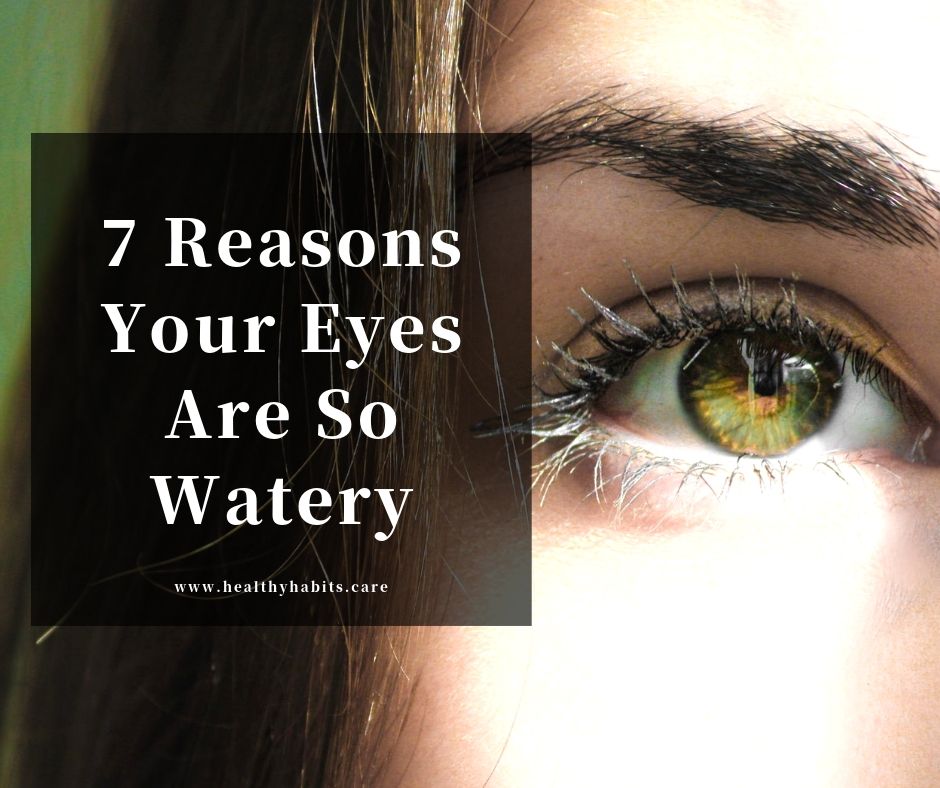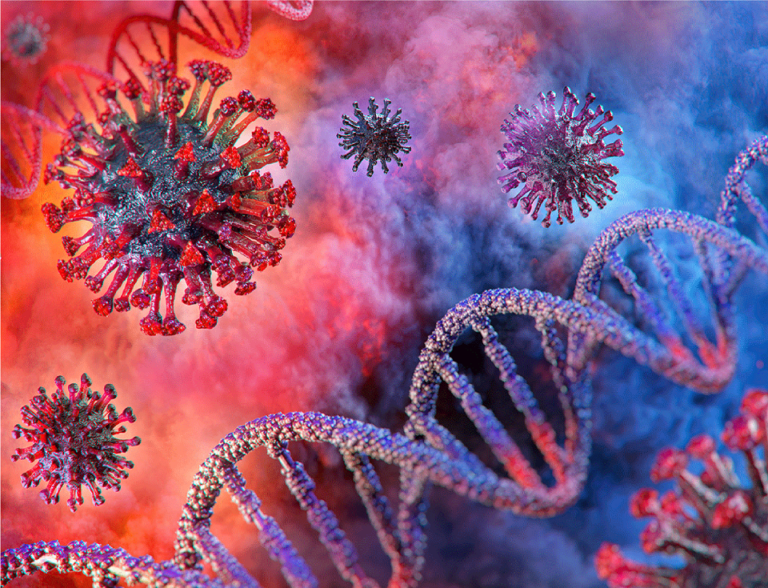
Tears wash away toxins and foreign invaders, protect the surface of the eye, and provide nutrients to your peepers. Something as simple as laughing or yawning can cause your eyes to water; so can spending too much time in bright light or in front of screens. None of these is cause for much concern.
But producing too many tears can also be a harbinger of trouble. If you have watery eyes with vision changes, pain, a lump near the tear duct, or the feeling of something in your eyes that won’t go away, contact a medical professional. Also seek help if the tearing doesn’t go away.
Your constant tearing could be due to one of these causes.
Oil gland dysfunction
The meibomian glands are located in the eyelids and produce the oily component of tears. That oil prevents the water in our tears from evaporating. If the meibomian glands aren’t producing enough oil–or not enough of the right quality oil–you could end up with dry eyes. This may seem counterintuitive, but having dry eyes is one of the most common causes of teary eyes. Your eyes reflexively tear to compensate for dryness.
“Putting a clean, hot towel over your eyelids can help open up the oil glands,” says Rajiv Shah, MD, assistant professor of ophthalmology at Wake Forest Baptist Medical Center. You can also gently massage your eyelids to help increase oil production. Cleaning along the lashline with your finger or a cotton swab dipped in diluted baby shampoo might also help clear blocked openings to the oil glands, according to the American Association for Pediatric Ophthalmology and Strabismus.
Dry eyes
Even if your oil glands are working optimally, you can still have dryness that leads to excessive tearing. If the underlying cause of dry eyes isn’t addressed, the tearing will just go on and on. Dry eye itself has multiple causes, including autoimmune diseases like rheumatoid arthritis, medicines like antihistamines, and exposure to smoke or wind. Dry eyes are also more common as we age, especially in postmenopausal women.
Talk to your doctor about over-the-counter eye drops and prescription medications for dry eyes.
Blocked tear ducts
Tears are produced by the lacrimal glands, then they wash over the eye and drain out through the small holes in the corner of the eye called tear ducts. If those ducts are blocked, tears will accumulate. Tear ducts can become blocked in adults because of an injury, an infection, inflammation, or (rarely) a tumor. Aging can also cause the tear ducts to narrow.
Blocked tear ducts are quite common in babies, especially newborns. In infants, blocked tear ducts often resolve on their own or can be helped with a special type of massage. In adults, doctors might prescribe antibiotics if an infection could be causing blocked tear ducts and watery eyes. In some cases, doctors will go in and manually open them up. “If it doesn’t go away, we have to do surgery,” says Kim Le, MD, a pediatric ophthalmologist with the Henry Ford Health System in Detroit. Fortunately, that surgery is usually quick and simple.
Allergies
Both allergies and colds can cause your eyes to water. This is usually nothing more than a nuisance. Limit allergy-related tearing by avoiding allergens as much as possible. Depending on your specific allergy, that could mean staying inside more during pollen season, keeping dust in the house to a minimum, or limiting time with cats and dogs. Over-the-counter eye drops along with decongestants and antihistamines can help. Consider asking your doctor about prescription-strength remedies too.
Conjunctivitis
Also called pink eye, conjunctivitis is most commonly caused by adenoviruses, pesky viruses that can cause the common cold, bronchitis, and sore throats. Teary eyes are just one pink eye symptom. You’ll likely also have itching, redness, and pain.
There’s not much by way of treatment for viral conjunctivitis, other than letting the infection run its course. A cool, wet compress over your eyes may ease some of the tearing and other symptoms. Like colds, this type of pink eye is rabidly contagious. Prevent spreading it by avoiding touching your eyes, washing your hands regularly, and cleaning pillowcases, sheets, and towels frequently.
Styes
Styes are little red bumps that grow on your eyelid or lashline and may cause tearing in the eye. Most styes are caused by bacterial infections, and they often hurt. “They’re like pimples on the eyelid,” says Bibiana Reiser, MD, assistant professor of ophthalmology at the Keck School of Medicine, University of Southern California and director of cornea and glaucoma services at Children’s Hospital of Los Angeles.
Styes are not serious, but they are annoying. A warm compress can help speed along healing. Your doctor might need to drain a stye that sticks around for more than a few days. Whatever you do, don’t squeeze a stye yourself, since that can spread the infection.
Cornea problems
The cornea is the transparent, outermost layer of the eye. It’s the first line of defense against germs, dirt, and anything else that could get into your eyes. That makes it vulnerable. Anything that irritates your cornea can also make your eyes water, be it a dust particle, a sore, or a scratch. You’re likely also to have redness, pain, and sensitivity to light if a cornea issue is causing your watery eyes.
Many problems with the cornea don’t need to be treated, while others may require medication or even surgery. Talk to your doctor if the irritation doesn’t go away or if you also have other symptoms.

























